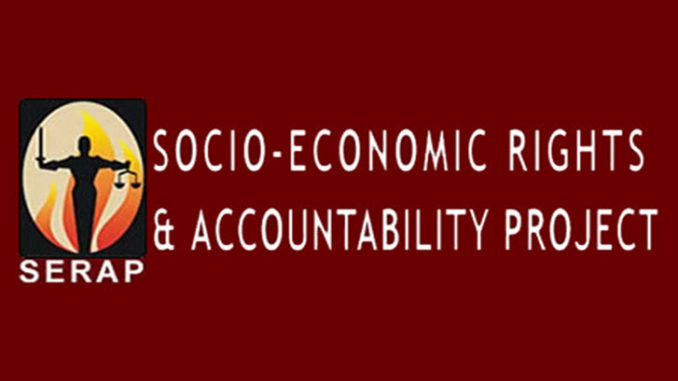
The decision by anti-corruption advocacy group, Socio-Economic Rights and Accountability Project SERAP, to sue President Muhammadu Buhari for failing to investigate bribery allegation against the Governor of Kano State, Abdullahi Ganduje, is an expression of public concern and interest which the federal government should not disregard. To do so will amount to an abdication of its avowed anti-corruption responsibility.
Notwithstanding that the issue is basically an internal issue for Kano State, it is nevertheless a test case for the President’s anti-graft campaign, particularly against the backdrop of criticisms that the campaign has been skewed against political opponents or perceived enemies of government. Therefore, SERAP’s action should be regarded as one in furtherance of the fight against corruption, and to encourage transparency in the public sphere.
The bribery allegation came up a few weeks back following a video clip that went viral on the internet showing the governor allegedly collecting bribes, or ‘kickbacks’, from some contractors. The clip was originally published on Twitter and made public by an online platform, Daily Nigerian. Governor Ganduje promptly denied the allegation through his Commissioner for Information, Muhammed Garba who insisted that there was no iota of truth in the allegation and that if the clip existed at all, “it is at best cloned.”
Necessity for the president’s concern is again to be viewed against a subsisting court order barring the Kano House of Assembly from investigating the allegation. The order, given at the instance of a non-governmental organisation, appears ominous to President Buhari’s position against corruption. The order has a disposition to be interpreted as the executive flexing its powerful muscle to override a damning complaint against a sitting governor.
Justice Ahmed Badamosi of the Kano High Court specifically restrained the House of Assembly and the investigation committee it set up on the allegation to stop its inquiry, and that all other parties in the matter should maintain status quo ante pending the determination of the originating summon filed by Mohammed Zubair, National Coordinator of Lawyers for Sustainable Democracy in Nigeria.
It is noted that besides his enjoyment of constitutional immunity against prosecution from criminal or civil complaints, the governor is deemed innocent of the charges, until he is pronounced guilty by a court of competent jurisdiction. But the governor is not immune from investigation, in line with the dictates of the Supreme Court, and the accepted practices of anti-corruption agencies as recently demonstrated in the matter of former governor Ayodele Fayose of Ekiti State.
What is playing out now, perhaps inadvertently, is an impression that despite these principles of law, Governor Ganduje is desperate to avoid any investigation into the allegation against him; and that he probably has the tacit support of the president. It will be unfortunate to have that impression sustained, more so as President Buhari has had occasion to praise Governor Ganduje who, similarly has had cause to sound public support for the president’s re-election bid.
The simple solution to douse the wrong signal being sent is for the Economic and Financial Crimes Commission (EFCC) or the Independent Corrupt Practices Commission (ICPC) or any other appropriate agency of government to institute an investigation to ascertain the authenticity or otherwise of the bribery allegation. The imperative of such investigation is high because both the governor and the president belong to the same party that profess anti-corruption. An investigation will debunk the perception that government is using anti-corruption campaign to deal with the opposition.
If indeed the EFCC has reportedly refused to act on the ground that it has received no formal report of the allegation, that ground is shaky and not a sufficient reason to withhold action. After all, the allegation is already in the public domain; and the journalist behind its publication has reportedly also defended his story publicly before the Kano House of Assembly, and before the court halted its investigation. The EFCC therefore should not wait for a formal report.
Governor Ganduje’s response that he did not collect bribe is emphatic and should not be disregarded by those seeking to hang him at all cost. But President Buhari and the federal government has again a unique opportunity to make their anti-corruption position transparent by causing an investigation into the bribery allegation. They should do this before the whole issue is politicised or government is made to look as if it is covering up for a sacred cow.
END

Be the first to comment